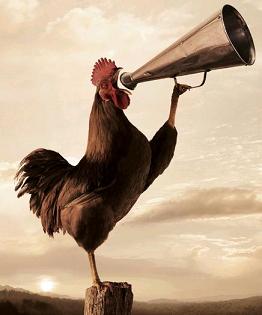
2. Strive to be an early bird, and not night owl
to prevent diabetes, muscle loss
![]()
 Even with the same amount of sleep as early risers, night owls are more prone to diabetes, muscle loss(sarcopenia) even if they get the same amount of sleep. That's the conclusion of a new study published in the Journal of Clinical Endocrinology & Metabolism that included more than 1,600 people in South Korea, aged 47 to 59, who provided information about their sleep habits and underwent tests to assess their health.
"Regardless of lifestyle, people who stayed up late faced a higher risk of developing health problems like diabetes or reduced muscle mass than those who were early risers," Dr. Nan Hee Kim, of Korea University College of Medicine in Ansan, South Korea, said.
Even with the same amount of sleep as early risers, night owls are more prone to diabetes, muscle loss(sarcopenia) even if they get the same amount of sleep. That's the conclusion of a new study published in the Journal of Clinical Endocrinology & Metabolism that included more than 1,600 people in South Korea, aged 47 to 59, who provided information about their sleep habits and underwent tests to assess their health.
"Regardless of lifestyle, people who stayed up late faced a higher risk of developing health problems like diabetes or reduced muscle mass than those who were early risers," Dr. Nan Hee Kim, of Korea University College of Medicine in Ansan, South Korea, said.
![]() "This could be caused by night owls' tendency to have poorer sleep quality and to engage in unhealthy behaviors like smoking, late-night eating and a sedentary lifestyle," Kim added.
"This could be caused by night owls' tendency to have poorer sleep quality and to engage in unhealthy behaviors like smoking, late-night eating and a sedentary lifestyle," Kim added.
![]() Of the 1,600 people in the study, 95 were night owls, 480 were early risers and the remainder fell somewhere in the middle. Even though they tended to be younger, night owls had higher levels of body fat and fats in the blood than early risers. Night owls were also more likely to have sarcopenia, a condition where the body gradually loses muscle mass, the findings showed.
Of the 1,600 people in the study, 95 were night owls, 480 were early risers and the remainder fell somewhere in the middle. Even though they tended to be younger, night owls had higher levels of body fat and fats in the blood than early risers. Night owls were also more likely to have sarcopenia, a condition where the body gradually loses muscle mass, the findings showed.
![]() Men who were night owls were more likely to have diabetes or sarcopenia than those who were early risers, the investigators found. Compared to women who were early risers, women who were night owls tended to have more belly fat and a higher risk of metabolic syndrome -- a collection of health conditions that increase the risk of diabetes, heart disease and stroke.
Men who were night owls were more likely to have diabetes or sarcopenia than those who were early risers, the investigators found. Compared to women who were early risers, women who were night owls tended to have more belly fat and a higher risk of metabolic syndrome -- a collection of health conditions that increase the risk of diabetes, heart disease and stroke.
For enquiries info@jothydev.net.
Please visit: jothydev.net | research.jothydev.com | diabscreenkerala.net | jothydev.com/newsletter
